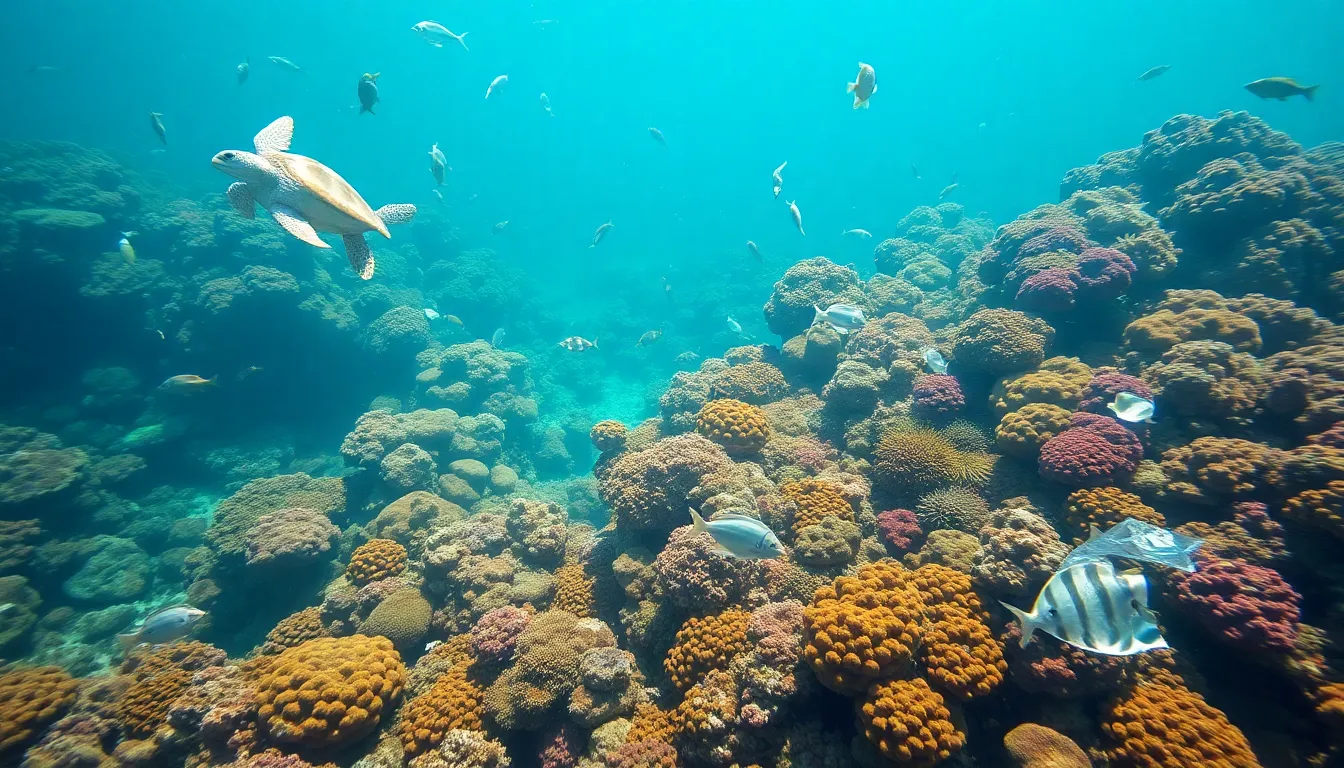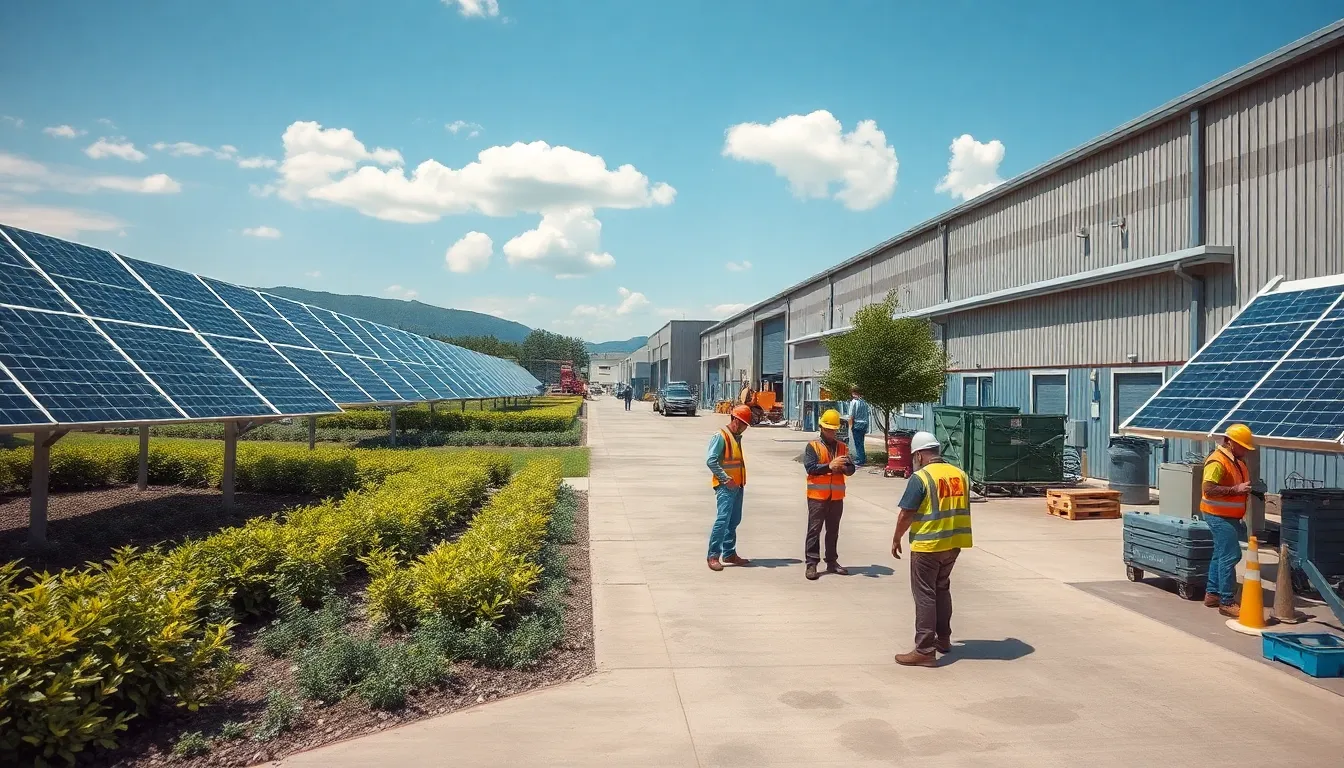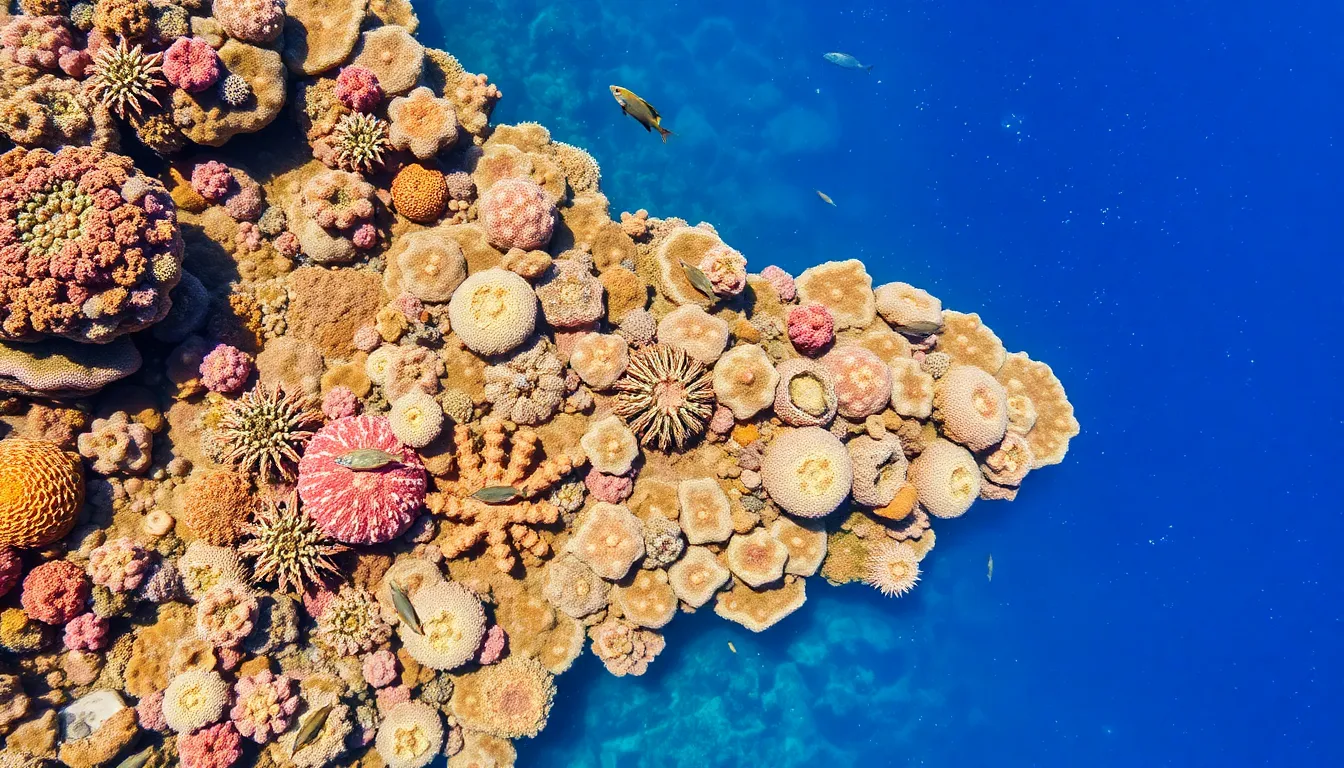Table of Contents
ToggleThe ocean, a vast blue wonderland, covers over 70% of our planet and holds more mysteries than a magician’s hat. Yet, despite its beauty, it’s facing a crisis that even Poseidon would raise an eyebrow at. From plastic pollution to overfishing, our oceans are in desperate need of a lifeguard, and it’s up to us to take the plunge.
Imagine a world where vibrant coral reefs thrive and dolphins frolic without a care in the world. This isn’t just a dream; it’s a reality we can create through ocean conservation. By protecting marine life and their habitats, we ensure that future generations can enjoy the same breathtaking beauty we often take for granted. So, grab your snorkel and let’s dive into the importance of preserving our oceans—because if we don’t, who will?
Importance Of Ocean Conservation
Ocean conservation plays a vital role in maintaining the planet’s health. Protecting the oceans ensures the preservation of marine life and ecosystems essential for humans and wildlife.
Biodiversity Protection
Biodiversity in oceans supports a wide array of fish species, marine mammals, and invertebrates. Approximately 230,000 marine species have been identified, but millions remain undiscovered. Healthy ecosystems promote resilience against environmental changes, while degradation threatens extinction. Coral reefs offer habitat to 25% of all marine life and are particularly vulnerable to climate change. Protecting these biodiversity hotspots fosters ecological balance and maintains food security for communities relying on fishing.
Climate Regulation
Oceans act as Earth’s climate regulators by absorbing carbon dioxide and producing oxygen. Roughly 30% of human CO2 emissions are absorbed by the oceans, mitigating the effects of climate change. Phytoplankton, microscopic plants in oceans, contribute nearly 50% of the oxygen humans breathe. Furthermore, oceans help regulate global temperatures, influencing weather patterns and precipitation levels. Their health directly affects atmospheric conditions, demonstrating the importance of ocean conservation in combating climate change effects.
Current Threats To Oceans

Oceans face multiple threats that compromise their health and biodiversity. Addressing these issues is crucial for the protection of marine ecosystems.
Plastic Pollution
Plastic pollution endangers marine life and habitats. Approximately 8 million tons of plastic enter oceans each year, harming wildlife through ingestion and entanglement. Sea turtles mistake plastic bags for jellyfish, while seabirds consume small plastic pieces, which can lead to starvation or poisoning. Microplastics, tiny plastic particles less than 5 mm, infiltrate marine food webs and pose risks to human health as these particles accumulate in seafood. Solutions such as reducing single-use plastics and improving waste management are vital in combating this pervasive threat.
Overfishing
Overfishing undermines fish populations and marine ecosystems. Global fisheries caught 179 million tons of fish in 2018 alone, leading to a decline in various species, including cod and tuna. Unsustainable fishing practices deplete stocks faster than they can replenish. Bycatch, the unintentional capture of non-target species, contributes to this problem, further threatening marine biodiversity. Solutions like implementing sustainable fishing quotas and establishing marine protected areas can restore balance to these vital ecosystems.
Successful Conservation Efforts
Successful conservation efforts play a vital role in protecting ocean ecosystems and preserving marine biodiversity.
Marine Protected Areas
Marine protected areas (MPAs) are critical for conserving marine habitats. Covering approximately 7.6% of the world’s oceans, these designated zones help restore and maintain biodiversity. MPAs limit human activities, allowing ecosystems to recover from overfishing and habitat destruction. Studies show fish populations within these areas increase by an average of 670% compared to unprotected zones. Countries such as Australia and the United States have launched successful MPA initiatives, showcasing their effectiveness. Furthermore, local communities benefit from sustainable fishing practices established within these protected areas.
Restoration Projects
Restoration projects focus on rehabilitating degraded marine environments. Coral reef restoration efforts involve planting coral fragments to enhance reef health. For instance, the Coral Triangle Initiative aims to protect 1.2 million square kilometers of ocean, which supports diverse marine life. Mangrove restoration efforts help stabilize coastlines and serve as nurseries for fish species. Various organizations work to restore seagrass beds, which improve water quality and provide habitat for wildlife. Effective restoration programs contribute to the resilience of marine ecosystems and support local economies reliant on healthy oceans.
How Individuals Can Contribute
Individuals play a crucial role in ocean conservation through everyday choices and actions. Small changes can lead to significant impacts on ocean health and marine ecosystems.
Reducing Plastic Use
Reducing plastic use directly benefits marine environments. Individuals can start by choosing reusable bags, bottles, and containers instead of single-use plastics. Engaging in community clean-up events helps remove waste from shorelines, preventing pollution. Additionally, opting for products with minimal packaging reduces overall plastic consumption. By being aware of plastic waste, individuals contribute to a decline in the estimated 8 million tons entering oceans annually.
Supporting Sustainable Practices
Supporting sustainable practices aids in protecting marine ecosystems. Individuals can prioritize seafood sourced from sustainable fisheries, as overfishing threatens fish populations. Choosing eco-friendly products and companies encourages responsible manufacturing practices. Advocating for local legislation that promotes sustainable initiatives strengthens community efforts toward conservation. Joining conservation organizations fosters awareness and collective action, amplifying individual efforts to restore ocean balance.
Ocean conservation isn’t just a responsibility; it’s a necessity for the health of our planet. Protecting marine ecosystems ensures that future generations can enjoy the beauty and bounty of the oceans. Every small action contributes to a larger movement toward sustainability.
By adopting eco-friendly practices and supporting conservation initiatives, individuals can play a pivotal role in safeguarding these vital resources. The collective effort to reduce pollution and promote sustainable fishing will help restore balance to our oceans.
With continued commitment and awareness, it’s possible to turn the tide on ocean degradation and foster a thriving marine environment for all. The future of our oceans depends on the actions taken today.







